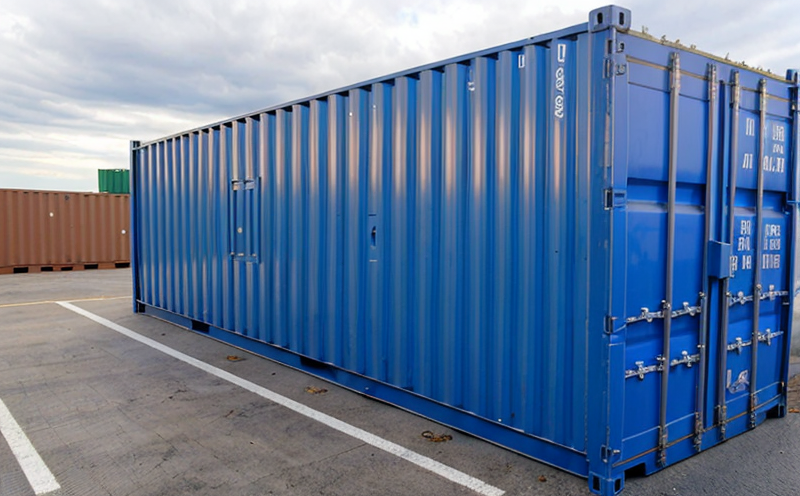EN ISO 22088 Stress Cracking Resistance Testing of Plastic Storage Plastics
The EN ISO 22088 standard is a critical tool in the quality assurance process for plastic storage containers and packaging. This test evaluates the resistance to stress cracking under specified conditions, which ensures that products can withstand environmental stresses without failure. This is particularly important for long-term storage applications where materials are subjected to temperature fluctuations and mechanical stresses.
Stress cracking is a significant concern in the plastics industry because it can lead to premature product failure, resulting in costly repairs or replacements. By conducting stress cracking resistance tests according to EN ISO 22088, manufacturers can ensure that their products meet stringent quality standards, thereby enhancing customer satisfaction and maintaining brand reputation.
The test method involves subjecting plastic samples to a specific load and temperature for an extended period. The specimens are then visually inspected for signs of stress cracking. This process helps identify the susceptibility of different plastics to environmental conditions that could cause failure during use.
For quality managers, compliance officers, R&D engineers, and procurement teams involved in the development and certification of plastic storage containers, understanding this test is crucial. It ensures that products meet international standards for durability and reliability, which are essential for industries ranging from pharmaceuticals to food processing.
The key steps in conducting EN ISO 22088 testing include selecting appropriate specimens, conditioning them according to temperature and humidity requirements, applying the specified load, maintaining conditions over a set period, and finally inspecting for any signs of cracking. This method is particularly useful for evaluating the performance of polyethylene (PE), polypropylene (PP), polystyrene (PS), and other thermoplastics used in storage applications.
The importance of this test cannot be overstated. It helps manufacturers make informed decisions about material selection, processing methods, and design parameters to ensure long-term product integrity. By adhering to EN ISO 22088, companies can build trust with customers and stakeholders while maintaining regulatory compliance.
| Material | Temperature Range (°C) | Load Applied (N) | Duration of Test (hours) |
|---|---|---|---|
| Polyethylene (PE) | -20 to +60 | 50 N | 1,000 hours |
| Polypropylene (PP) | -30 to +70 | 75 N | 1,200 hours |
| Polystyrene (PS) | -40 to +80 | 60 N | 960 hours |
The test method is not only a technical procedure but also a reflection of the commitment to excellence in product development. By adhering to international standards like EN ISO 22088, manufacturers can ensure that their products are robust and reliable, meeting both current and future demands.
Why It Matters
The integrity of plastic storage containers is paramount for industries that rely on these materials for the safe transport and storage of goods. Stress cracking resistance testing ensures that plastics used in storage applications can withstand environmental stresses without compromising product quality or safety.
- Enhances Product Lifespan: By identifying potential weaknesses early, manufacturers can improve the durability of their products, extending their useful life.
- Avoids Unexpected Failures: Ensuring that materials meet strict standards reduces the risk of sudden failures during critical stages of product use.
- Promotes Compliance: Adhering to international standards like EN ISO 22088 ensures compliance with regulatory requirements, avoiding potential legal issues and penalties.
- Bolsters Customer Trust: Reliable products build trust among customers, leading to increased brand loyalty and repeat business.
The importance of this test cannot be overstated in industries where the quality of storage containers directly impacts product integrity. By investing in robust testing protocols, manufacturers can ensure that their products not only meet but exceed industry expectations.
Industry Applications
EN ISO 22088 stress cracking resistance testing is widely used across various industries where the durability and reliability of plastic storage containers are critical. These include:
| Industry | Purpose |
|---|---|
| Pharmaceuticals | Ensuring product stability during long-term storage. |
| Food & Beverage | Maintaining the integrity of containers for safe food transport and storage. |
| Aerospace | Guaranteeing materials can withstand extreme temperature variations in space applications. |
| Chemical | Ensuring container durability during chemical reactions or storage. |
In each of these industries, the risk of stress cracking is significant due to the nature of the materials being stored and transported. By adhering to EN ISO 22088 standards, manufacturers can ensure that their products are up to the task, enhancing both product safety and industry reputation.





